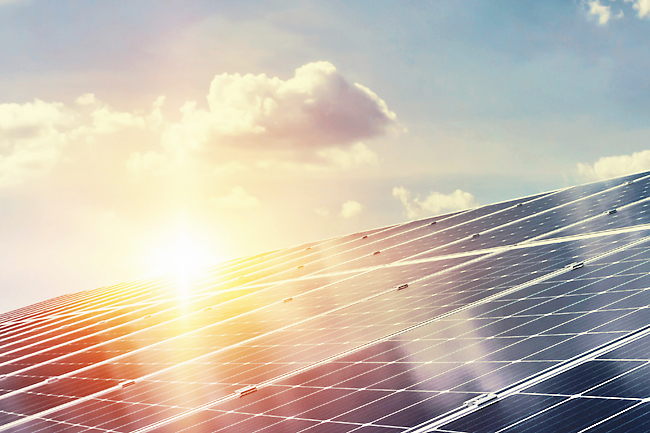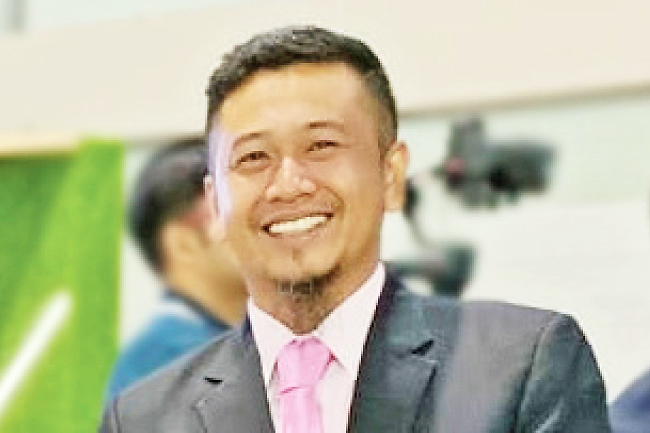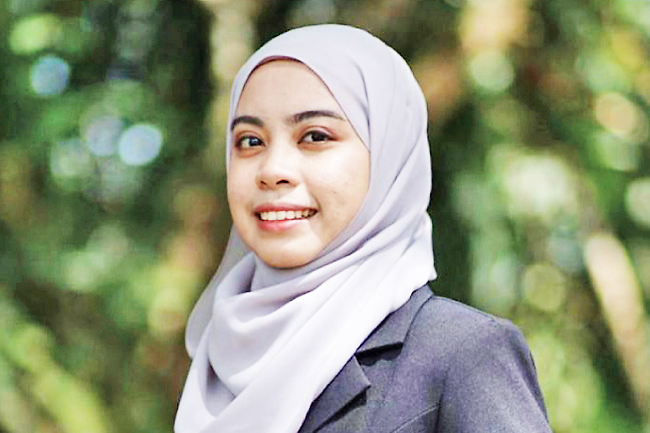Danial Norjidi
In line with aims and goals in energy efficiency, conservation and renewable energy, several initiatives and activities have been implemented in Brunei Darussalam. This was shared during a recent interview with officers from the Ministry of Energy (ME).
Special Duties Officer II from the Renewable Energy Unit of the Sustainable Energy Division at the ME Nurul Hadinah binti Yahaya noted that the ministry has committed to increase the capacity of renewable energy to at least 300 megawatts by 2035.
“Towards this end, the ministry has prepared a plan of the implementation for the use of renew-able energy, by giving the main focus to energy in generation, especially from photovoltaics.”
“Among the future plans that will be implemented include the construction of small, medium and large scale projects, implementing collaborative projects with relevant stakeholders, including private parties and non-governmental agencies as well, and also continuation to de-ployment of solar projects in rural areas.”
Currently, the ministry has made plans to develop a 30 megawatt solar project at Kampong Belimbing in Mukim Kota Batu through a public-private partnership (PPP) concept.
Nurul Hadinah also said the government through the ME is providing a Net Metering programme that can increase the implementation of small and medium scale solar systems for all sectors.

The ministry is currently conducting the second phase of the programme, which is open for the government, commercial, residential and industrial sectors to participate.
“With this Net Metering programme, solar technology owners will be able to channel the excess power generated from their solar PV system to the national grid. So the excess in generation will be recorded in the meters that are installed and can later be used especially at night,” shared Nurul Hadinah. “The programme hopes to encourage the installation of renewable energy technologies in the government, residential, industrial and commercial sectors.”
Regarding how these initiatives align with the government’s net zero 2050 goals, she said, “In supporting and upholding the government’s aspirations towards this reduction of greenhouse gas emissions, the ME will implement several initiatives as outlined in the ministry’s strategic plan.”
“In the context of renewable energy, having a solar system installed and using it for your own consumption will definitely reduce our reliance on the conventional supply from the grid. As the volume grows, we eventually reduce and release a portion of stress at our power plants in producing the electricity from the national gas. This certainly reduces our emissions to the environment and assists the country in climate change mitigation eventually.”
Meanwhile, Economic Officer from the Energy Efficiency and Conservation Unit under the Sustainable Energy Division at the ME Md Rifdi bin Haji Sahari spoke on education and awareness for the public with regards to adoption of sustainable practices.
“Currently, since we are facing this COVID-19 pandemic, most of our socialisation is towards social media and websites so that it will reach all age groups.”
Md Rifdi also mentioned the Standards and Labelling Order (SLO), which he explained introduced a labelling scheme that aims “to directly educate the people in selecting electrical products. For instance, for the first phase, it’s air conditioning.”
He shared that with the SLO, when people go to a shop, they can easily recognise the labelling from the ME that says whether an electrical appliance has a 2-star or 5-star rating, for example. The better the star rating, the higher the efficiency an electrical appliance has. “If it is only 1-star, it shows that it is less efficient, meaning that it is still efficient, but not comparable to the 5-star rating.”
From this labelling, the consumer can easily recognise what kind of electrical appliances could bring savings to their monthly bill, he said.
Nurul Hadinah added, “Under the renewable energy context, there are a few platforms that we have been using for education and aware-ness among the public so as to gain adaption of sustainable practices. For example, the Mid-Year Conference and Exhibition (MYCE) held last year and that will be held annually. That is one of the platforms that we will be using for this purpose.”
Another initiative is an environmental tour project coorganised last year by the ME and Green Brunei in collaboration with the Mitsubishi Corporation. “The tour programme is part of a multi-sectoral educational awareness programme to support the national climate change mitigation plans under the Brunei Darussalam National Climate Change Policy (BNCCP).”
Bank Islam Brunei Darussalam (BIBD) and the Brunei Darussalam National Council on Climate Change (BNCCC) in December announced the intention to sign a Memorandum of Understanding (MoU) in the first quarter of 2022.
Asked on BIBD’s role through the MoU in terms of energy conservation and renewable energy initiatives, Hadinah said, “BIBD is a key en-abler in accelerating the efforts in energy saving and renewable energy.”
“Relating back to the high costs of energy saving appliances and also high costs of renewable energy systems, BIBD can actually play a role as a financial provider, offering services such as green financing which can be flexible with attractive rates, to help the public who wish to contribute to sustainable practices but are concerned about the financial part of the processes, due to the high initial costs. So I think from this part, BIBD is actually a key enabler for this purpose,” she added.
With regards to BIBD’s role in education and awareness, Md Rifdi said, “In this first phase, BIBD is actually concentrating on awareness among the public, especially the younger generation, to acknowledge what the potential energy sources are, like renewable energy, for instance.”
“BIBD is emphasising what kind of efforts within energy savings people may practice every day. For instance, the no-cost initiatives such as switching off an air conditioner when not in use and switching off the lights when going out of the house.”
Nurul Hadinah added, “Like other platforms that we’ve been using for education purposes which are MYCE and the education tour pro-gramme, BIBD could be a major platform that we can use for the purpose of sharing the ministry’s efforts in renewable energy.”
Acknowledging that equipment and installation of solar systems can incur high costs, BIBD has shared that it is looking at a number of alternatives, where one of the endeavours is the provisioning of specific products to offer green financing services in the future.


Highlights
Renewable energy, conservation and efficiency
- The Ministry of Energy has corn-mitted to increase the capacity of renewable energy to at least 300 megawatts by 2035.
- Future plans to be implemented include the construction of small, medium and large scale projects, collaborative projects with relevant stakeholders and a continuation to the deployment of solar projects in rural areas
- The ministry has made plans to develop a 30 megawatt solar project at Kampong Belimbing in Mukim Kota Batu through a PPP concept.
- The ministry is providing a Net Metering programme that hopes to encourage the installation of re-newable energy technologies in the government, residential, industrial and commercial sectors.
- The Standards and Labelling Order (SLO) aims to directly educate people in selecting efficient electrical products, enabling consumers to easily recognise what kind of electrical appliances could bring sav-ings to their monthly bill.
Memorandum of Understanding
- Through an MoU, BIBD and the BNCCC will work collaboratively towards realising Brunei’s climate action aspirations, and in support of the country’s national climate change mitigation initiatives.
- BIBD is a key enabler in accelerat-ing the efforts in energy saving and renewable energy.
- BIBD also has a role as a platform for education and awareness on efforts in renewable energy.


